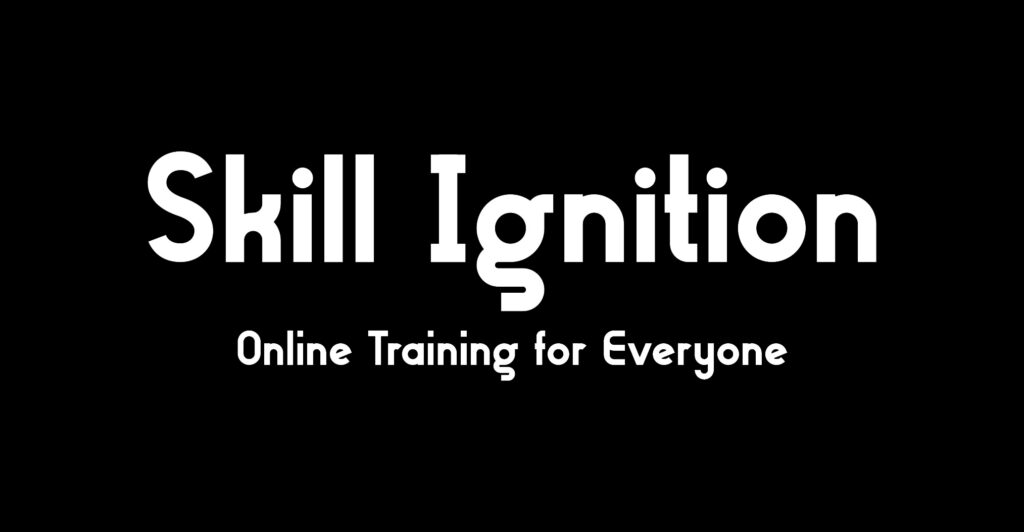Virtual Instructor-Led Training
Get certified or simply improve your skills with our virtual Instructors.
Categories
- Agile
- AI/ML
- All Courseware
- Application & Infrastructure
- Business Analysis
- Cloud
- Data & Analytics
- Design Multimedia
- Developer
- DevOps
- Dynamics
- End User Application
- IT Service Management
- Leadership & Professional Development
- Modern Workplace
- Networking & Wireless
- Networking and Wireless
- Office Applications
- Programming
- Project Management
- Security
- Virtualization
Vendors
- Adobe
- Agile
- Amazon
- AWS
- Business Analysis
- CertNexus
- Cisco
- CompTIA
- Crystal Reports
- DCMS
- Development
- DevOps Institute
- DVMS
- EC-Council
- ISACA
- ISC2
- Leadership & Professional Development
- Logical Operations
- Microsoft
- Microsoft Apps
- Microsoft Technical
- PeopleCert
- PMI
- Project Management
- Python
- Red Hat
- Scrum
- SHRM
- Six Sigma
- Tableau
- TCM Security
- Tracom
- VMware
- Web Development
- Workplace Fundamentals
DevOps
Red Hat
Develop, scale, and troubleshoot event-driven microservice applications. Learn to use Kafka and AMQ Streams to design, develop, and test event-driven applications. Event-driven microservices scale globally, store and stream process data, and provide low-latency feedback to customers. This course is for application developers and is based on Red Hat AMQ Streams 1.8 and Red Hat OpenShift Container Platform 4.6.- 3 Days Course
- Live Virtual
$3,886.99 – $4,268.42DevOps Institute
This comprehensive course addresses testing in a DevOps environment and covers concepts such as the active use of test automation, testing earlier in the development cycle, and instilling testing skills in developers, quality assurance, security, and operational teams.
The course is relevant for every modern IT professional involved in defining or deploying a DevOps testing strategy for their organization, as test engineering is the backbone of DevOps and the primary key for successful DevOps pipeline to support digital transformation.
Actionable and exciting exercises will be used to apply the concepts covered in the course and sample documents, templates, tools, and techniques will be provided to leverage after the class. This certification positions learners to successfully complete the Continuous Testing Foundation exam.
- 2 Days Course
- Live Virtual
$1,810.30DevOps Institute
DevOps Foundation® is a fast-paced, interactive two-day course that introduces essential DevOps principles, practices, and cultural shifts. Through real-world examples and hands-on exercises, you’ll learn how DevOps bridges development and operations to drive collaboration, automation, and continuous improvement.
Inspired by The Phoenix Project and backed by the latest State of DevOps research, this course goes beyond theory. It helps business and technical professionals alike understand how to bridge silos, increase collaboration, and accelerate innovation. Whether you’re looking to drive digital transformation or just work more effectively in cross-functional teams, DevOps Foundation® sets you up for success.
- 2 Days Course
- Live Virtual
$1,810.30DevOps Institute
DevOps adoption continues to grow, with 80% of organizations implementing DevOps practices to accelerate delivery and improve performance. Yet many transformations stall due to cultural resistance, not technical barriers. The DevOps Leader (DOL)® training course is designed to close that gap by preparing professionals to take a transformational leadership approach and make an impact within their organization by implementing DevOps.
This unique and practical experience equips participants with the new skills and tools to engage people across the DevOps spectrum. You’ll learn how to foster the human dynamics of cultural change, align and collaborate to break down silos, and evolve the organization through real-world leadership strategies.
- 2 Days Course
- Live Virtual
$1,810.30DevOps Institute
The SRE (Site Reliability Engineering) Foundation? course is an introduction to the principles & practices that enable an organization to reliably and economically scale critical services. Introducing a site-reliability dimension requires organizational re-alignment, a new focus on engineering & automation, and the adoption of a range of new working paradigms.
The course highlights the evolution of SRE and its future direction, and equips participants with the practices, methods, and tools to engage people across the organization involved in reliability and stability evidenced through the use of real-life scenarios and case stories. Upon completion of the course, participants will have tangible takeaways to leverage when back in the office such as understanding, setting and tracking Service Level Objectives (SLO’s).
The course was developed by leveraging key SRE sources, engaging with thought-leaders in the SRE space and working with organizations embracing SRE to extract real-life best practices and has been designed to teach the key principles & practices necessary for starting SRE adoption.
- 2 Days Course
- Live Virtual
$1,810.30Red Hat
This course will empower you to install and administer the Red Hat® OpenShift® Container Platform, with hands-on, lab-based materials that show you how to install, configure, and manage OpenShift clusters and deploy sample applications to further understand how developers will use the platform. This course is based on Red Hat® Enterprise Linux® 7.5 and Openshift Container Platform 3.9. OpenShift is a containerized application platform that allows your enterprise to manage container deployments and scale your applications using Kubernetes. OpenShift provides predefined application environments and builds upon Kubernetes to provide support for DevOps principles such as reduced time to market, infrastructure-as-code, continuous integration (CI), and continuous delivery (CD).- 5 Days Course
- Live Virtual
$5,498.70 – $5,981.85Red Hat
A developer introduction to building and managing containers with Podman for deploying applications on Red Hat OpenShift.
Red Hat OpenShift Development I: Introduction to Containers with Podman (DO188) introduces students to building, running, and managing containers with Podman and Red Hat OpenShift. This course helps students build the core skills for developing containerized applications through hands-on experience. These skills can be applied using all versions of OpenShift, including Red Hat OpenShift on AWS (ROSA), Azure Red Hat OpenShift, and OpenShift Container Platform.
This course is based on Red Hat® Enterprise Linux® 9, Podman 4.4 and Red Hat OpenShift® 4.14.
- 3 Days Course
- Live Virtual
$3,886.99 – $4,268.42

